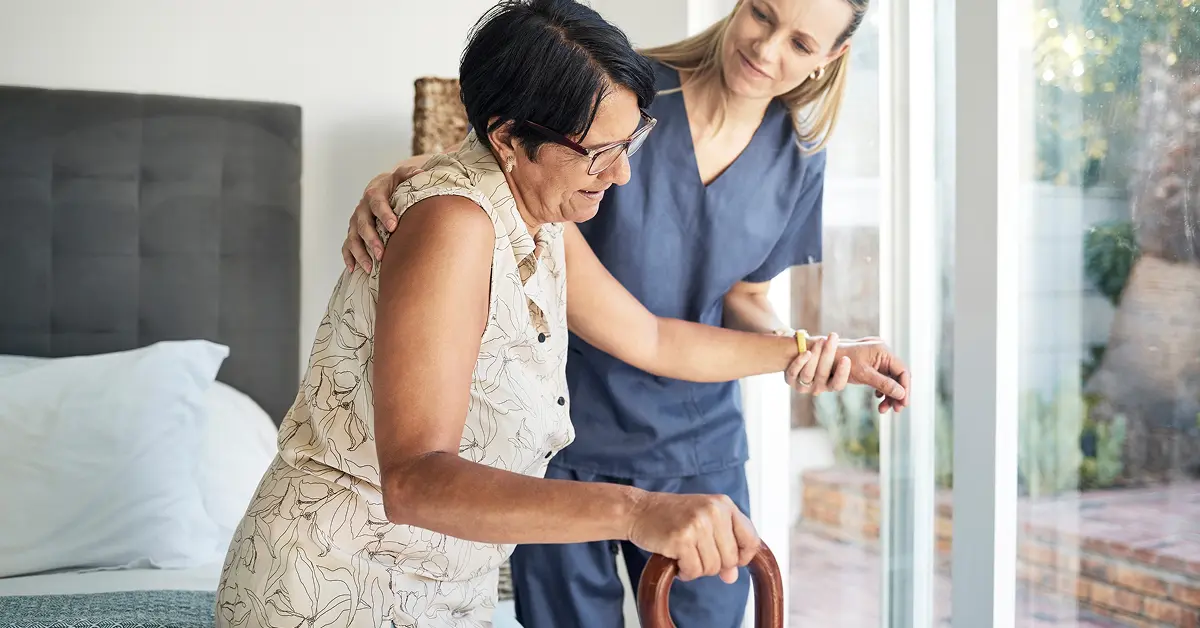Recovering from surgery, illness, or a chronic condition can be challenging—both physically and emotionally. Many families in India now turn to home caregivers for support, and for good reason. Home caregiving services have emerged as a powerful aid in Patient Care offering personalised attention, emotional comfort, and expert care—all within the familiar environment of home.
In this blog, we will explore how home caregivers accelerate the recovery process and why they are becoming an essential part of modern healthcare.
Familiar Environment Enhances Healing
There’s no place like home, especially when you're trying to heal. Hospitals, despite their resources, can feel sterile, noisy, and stressful. Home caregivers bring professional care to the comfort of your own surroundings. This relaxed, familiar atmosphere reduces patient anxiety, boosts morale, and allows them to stick to routines that promote faster recovery.
In India, where multigenerational living is common, recovering at home also means being close to family—a key factor in emotional wellbeing. With trained caregivers on hand, families can support without being overwhelmed by medical responsibilities.
Personalised Care Plans
Hospitals often operate on tight schedules with high patient-to-nurse ratios. In contrast, home caregivers focus on just one patient at a time. They create tailored care plans in collaboration with doctors and physiotherapists, adjusting strategies based on the patient’s evolving condition.
For example, a patient recovering from a hip replacement may need assistance with mobility exercises, wound care, and daily tasks. A home caregiver ensures all these needs are met consistently, tracking progress and making immediate changes if complications arise.
Better Medication Management
One of the most common causes of delayed recovery or rehospitalisation is incorrect medication usage. Home caregivers are trained to administer medicines on time, monitor side effects, and ensure the right dosages are taken.
They also educate patients and family members on the purpose of each drug, which helps build compliance and confidence. In India, where polypharmacy (taking multiple medications) is prevalent among seniors, this vigilance can be life-saving.
Support with Daily Activities
During recovery, even simple tasks like bathing, dressing, cooking, or walking to the bathroom can become risky. A home caregiver provides physical support while respecting the patient’s dignity and independence.
This ensures that the recovering person remains clean, nourished, and active—without suffering accidental injuries. Moreover, for bedridden patients, caregivers regularly reposition them to prevent bedsores, clean wounds, and maintain hygiene.
Reduced Risk of Infections
Hospitals are breeding grounds for infections like MRSA, pneumonia, or UTIs due to exposure to various pathogens. By recovering at home, patients are shielded from such hospital-acquired infections.
Home caregivers uphold a strict hygiene protocol, sterilising equipment, maintaining cleanliness, and using personal protective equipment (PPE) when needed. This dramatically reduces the risk of setbacks caused by secondary infections.
Faster Rehabilitation with Physiotherapy Support

Recovery often includes physiotherapy. Home caregivers collaborate with physiotherapists to ensure exercises are performed safely and consistently. They also encourage mobility by helping patients walk, stretch, or use assistive devices as needed.
This consistent routine reduces stiffness, boosts strength, and shortens the recovery period. In post-surgical cases like knee replacements or stroke rehabilitation, this kind of guided mobility is crucial for regaining independence.
Emotional and Mental Support
Healing is not just physical—it’s emotional too. Home caregivers offer companionship, listen to the patient’s concerns, and help reduce feelings of loneliness, anxiety, or depression. This emotional stability is directly linked to improved recovery outcomes.
In Indian households, especially when adult children are away for work, caregivers provide that much-needed human connection. They also identify early signs of mental distress, enabling timely interventions.
Diet and Nutrition Monitoring
A balanced diet is critical to healing. Caregivers help with meal planning, preparation, and feeding if required. They ensure the patient receives nutrition tailored to their condition—be it high-protein diets for wound healing or diabetic-friendly meals.
Many caregivers also coordinate with nutritionists or follow post-discharge dietary instructions from doctors. This level of monitoring prevents malnutrition and helps the body rebuild faster.
Reduced Readmissions
One of the biggest benefits of having a home caregiver is the significant reduction in hospital readmissions. With careful monitoring of symptoms, proper wound care, and early identification of complications, caregivers help prevent relapses or emergencies.
For chronic conditions like diabetes, COPD, or hypertension, long-term caregiving also ensures lifestyle changes are followed—ultimately improving quality of life and reducing dependency on hospitals.
Peace of Mind for the Family
Recovery can be exhausting for family members who lack medical training. A professional caregiver lifts that burden. Families get peace of mind knowing that their loved one is being cared for by someone who understands medical needs, emergency protocols, and emotional sensitivities.
Caregivers often serve as a bridge between doctors and families—updating medical progress, attending follow-up visits, and ensuring all advice is implemented at home.
Conclusion
The road to recovery is smoother, safer, and faster with a dedicated home caregiver. Whether it's a short post-surgery rehabilitation or long-term care for a chronic illness, the benefits are clear. From administering medications to providing emotional support, caregivers become an indispensable part of the healing journey.
In India’s fast-evolving healthcare landscape, home caregiving services are filling a vital gap—offering affordable, high-quality care right at your doorstep. If you or your loved one is facing a challenging recovery, hiring a trained home caregiver might be the wisest, most compassionate decision you can make.
Looking for trusted home caregiving services in India?
Explore certified, background-verified caregivers who offer personalised care for faster, safer recovery—at home.
Contents
- Familiar Environment Enhances Healing
- Personalised Care Plans
- Better Medication Management
- Support with Daily Activities
- Reduced Risk of Infections
- Faster Rehabilitation with Physiotherapy Support
- Emotional and Mental Support
- Diet and Nutrition Monitoring
- Reduced Readmissions
- Peace of Mind for the Family
- Conclusion
Our 24*7 services
Latest Posts
- What Is Respite Care and Why Is It Important
- Affordable home care for senior citizens in India
- Caring for Seniors with Dementia or Alzheimer's at Home
- Senior Caregiving A Guide for Every Family
- How to Write a Caregiver Resume That Gets You Hired
- How Care After Hospital Discharge Speeds Up Recovery at Home
- How to Get Home Health Care for Seniors Through Medicare
- What Does a Senior Citizen Caregiver Really Do at Home
- How to Care for Elderly Parents with Alzheimer’s or Dementia
- How to Get 24-Hour Care for Seniors at Home


